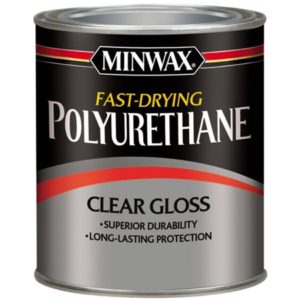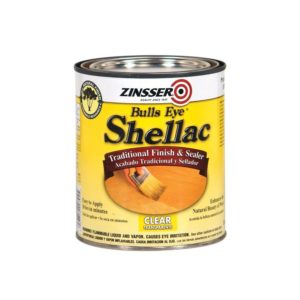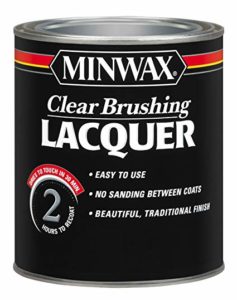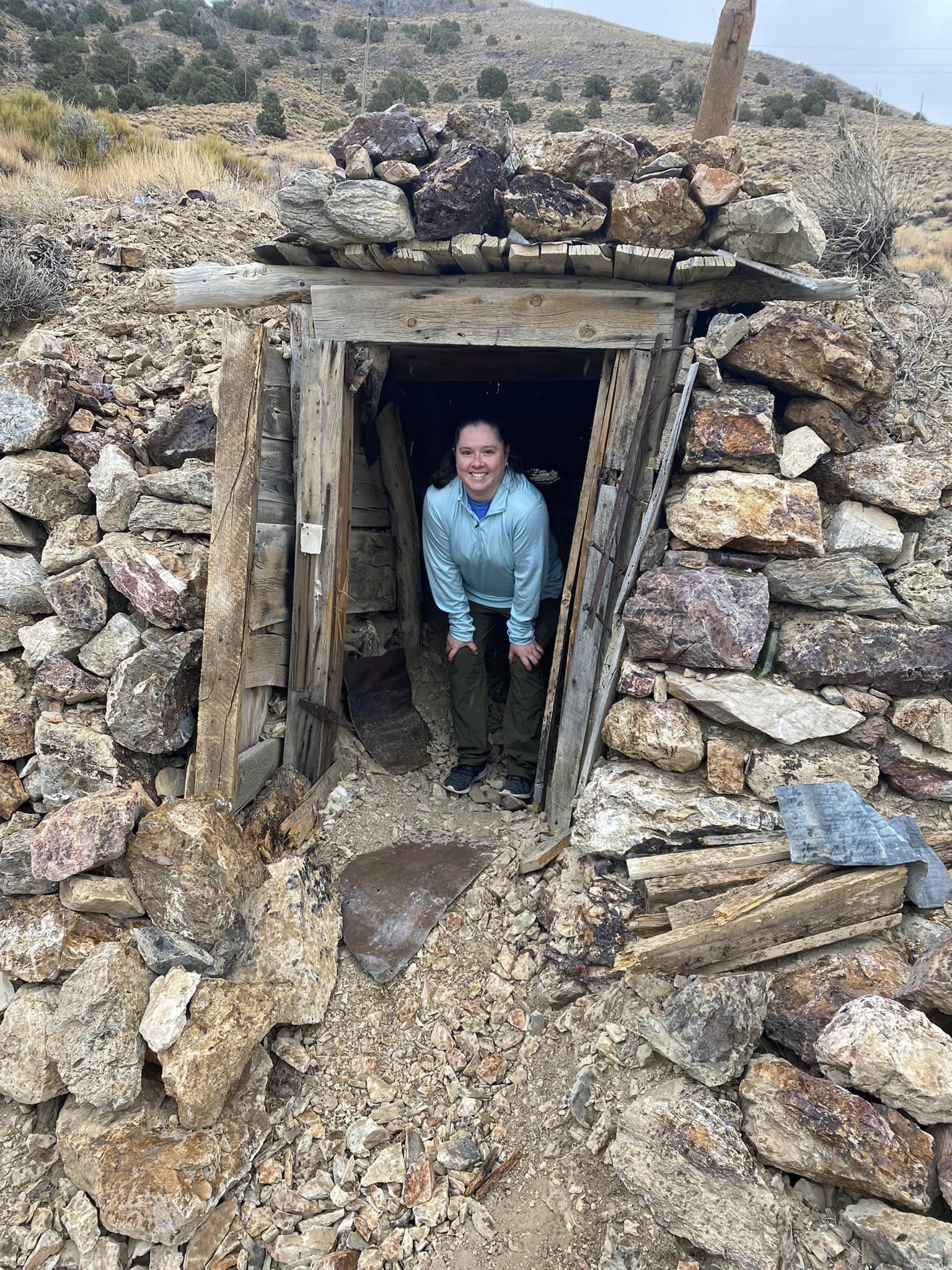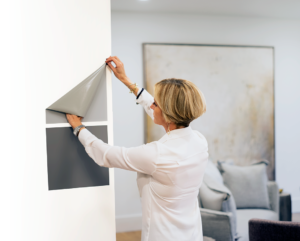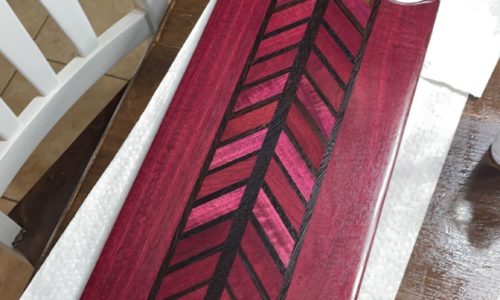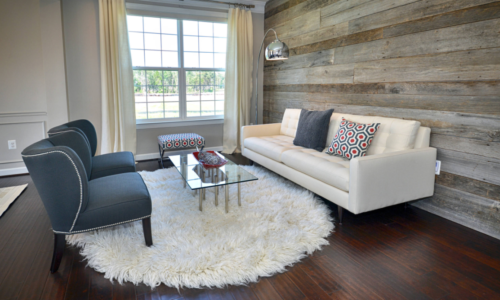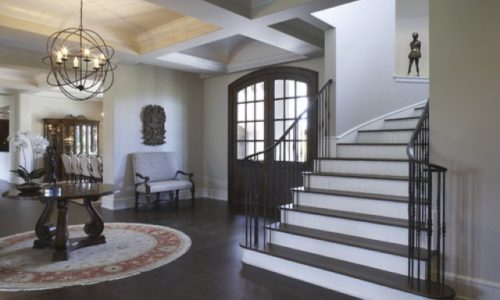Protective Finishes
This is a great question because these terms are often used interchangeably to reference a final top coat or protective finish. Each of these products differ from each other and should not be used interchangeably. However, these products are all classified as protective finishes. It’s important to know which protective finish will work best for your purposes.
Without some kind of hard protective finish, wood will become dry and brittle. Coating wood with a hard finish, stained or not, will enhance the beauty of wood while providing complete durability.
By the end of this article, you will have a clear understanding of the difference between protective finishes like lacquer, varnish, polyurethane and shellac. Use this as a guide to choosing the best, most durable clear finish for your purposes.
Polyurethane
What is polyurethane? Polyurethane is essentially a liquid plastic and it can be either water based or oil based. While both offer strong protection, the biggest difference between an oil based and a water based polyurethane is the appearance, and odor.
Water Based Polyurethane
Water based finishes evaporate the water first and feel dry to the touch but gradually harden and cure over a period of time. Water-based polyurethane is usually a better choice for amateurs tackling projects on their own.
Water based polyurethanes are popular because they won’t yellow over time like an oil base will, and because of their low odor and easy cleanup. In the can, water based polyurethanes appear milky, but go on clear and remain clear.
Water based polyurethanes also dry much faster than oil based, which allows you to apply multiple coats in a shorter amount of time. Certain water based polyurethanes will withstand water and heat but most will not. My personal favorite water based topcoat is General Finishes High Performance Water Based Polyurethane because it withstands water and heat.
Advantages of Water Based Polyurethane
- Low odor- This makes a big difference when working in a confined space such as a garage or bedroom.
- Fast dry time- This is a huge advantage of water based polyurethanes. A fast dry time allows you to finish a project in half the time. This is because it can be re-coated within a couple of hours.
- Will not yellow or amber over time- While water based polyurethanes appear milky in the can, they go on clear, and remain clear for the lifetime of the finish.
- Durability- Water based polyurethanes are just as durable as oil based polyurethanes, as long as the recommended number of coats are applied.
- Available in more sheens- Water based polyurethanes are available in Flat, Matte, Satin, Semi-Gloss and High Gloss. Oil based polyurethane naturally shinier which is why it’s rare to find a flat oil based polyurethane.
Disadvantages of Water Based Polyurethane
- Dull finish- Depending on the type of wood, water based polyurethanes don’t bring out the depth of wood as much as oil based polyurethanes.
- Difficult to repair a damaged finish- If the protective finish is damaged, it’s nearly impossible to fix the area without having to strip it down and start over.
- Cost- Water based polyurethanes tend to cost more than an oil based because the material to manufacture water based costs more.
- Top Rated Water Based Polyurethanes
Top Rated Water Based Polyurethane
Oil Based Polyurethane
Oil based polyurethanes are slightly more durable than water based, but they yellow or amber over time. Oil based polyurethanes also have a strong odor, and mineral spirits or paint thinner are required for cleanup.
Advantages of Oil Based Polyurethane
- Durability- Oil based polyurethane is very durable and virtually scratch proof once fully cured.
- Depth of color- Oil based polyurethanes tend to bring out the depth of wood more than water based polyurethanes.
- Low maintenance- Once fully cured, there is essentially no maintenance needed to maintain the finish.
- Cost- Oil based polyurethanes are less expensive than water based polyurethanes.
Disadvantages of Oil Based Polyurethane
- Strong odor- Oil based polyurethanes are much higher in VOCs and are not environmentally friendly. Personally, the strong odor associated with oil based polyurethanes is the deciding factor for me, depending on the project. We had our lower level hardwood floors refinished in the middle of December. We made the mistake of sleeping upstairs, the same day the oil based polyurethane was applied. We all had severe headaches, and wound up opening all bedroom windows to let fresh air in. I thought I was going to freeze to death that night.
- Yellows over time- Any oil based protective finish will yellow over time. Certain cleaners, especially Ammonia based cleaners will make the finish yellow faster. (See image below)
- Difficult to repair a damaged finish- If the protective finish is damaged, it’s nearly impossible to fix the area without having to strip it down and start over.
- Dry time- Oil based polyurethanes take 8-12 hours to dry, and a second coat cannot be applied until it has fully dried.
Top Rated Oil Based Polyurethanes
- General Finishes Arm R Seal, $, A+, Click Here
- Minwax Polyurethane, $, A+, Click Here
- Varathane, $, A, Click Here
Varnish
Varnish is made up of resins, oils and solvents. Varnish contains a higher amounts of solids, and tends to give wood a tinted color when applied. While varnish is transparent, it often has a yellowish tone. Varnish is more flexible than other protective finishes, which helps reduce cracking and splitting.
Varnish works well on surfaces exposed to water or sunlight. This is because it contains a higher solid content, and naturally protects against UV rays. Varnish is especially popular for use on boats, deck chairs and decks.
Advantages of Varnish
- Strong protection against UV
- Flexible
- Nice depth of color
- Low Toxicity
- Protects against water and chemicals
Disadvantages of Varnish
- Less Durable
- Yellows over time
- Average cure time is 3+ days
Top Varnishes
Shellac
Shellac is a safe and natural protective finish, made from a resin secreted from the female lac bug and ethanol. It is available in a clear or amber tint. Shellac brings out the rich warmth of wood grain making surfaces look soft and natural instead of plastic. As long as shellac does doesn’t come in contact with chemicals, water or heat, the finish will last many years.
Advantages of Shellac
- Non-toxic once dry
- Shellac is virtually fool proof. It can be applied with a brush, cloth, sprayer, or pad.
- Easy to repair if damage occurs
- Dry Time- Shellac dries to the touch in MINUTES and, can typically be sanded or re-coated in less than an hour.
Disadvantages of Shellac
- Does not protect against heat or water- Heat can create hazy white areas, and water can create rings.
- Not recommended for- kitchen cabinets, bar tops, tabletops, kitchen floors and furniture in high humidity areas.
- Scratches easily
- Doesn’t hold up as well over time- Shellac can turn cloudy over time, and if alcohol is spilled on the shellac surface, it will be susceptible to dissolving the finish.
Shellac Rating
1. Shellac, $, A+,Half Pint, Quart,
Lacquer
Lacquer is often thought of as the best all-around finish for wood. It dries quickly, and it’s very durable. It is more durable than shellac, although it is very thin and must be applied in many thin coats. Lacquers are available in brushing or spray form.
I would highly recommend amateurs not apply a brushing lacquer because it is easy to over apply. Its also important to note that while lacquers can be used on most woods, it cannot be used on mahogany and rosewood. This is because the oils in these woods will bleed through the finish.
Advantages of Lacquer
- Durability- Lacquer is much thinner than any other protective finish which allows for deeper surface penetration and a very durable finish.
- Appearance
- Cost- Lacquer is less expensive than other protective finishes.
- Minimal number of coats- You will only need to apply 1 or 2 coats for a nice durable finish.
Disadvantages of Lacquer
- Can be difficult to work with- Because lacquer dries so quickly, sometimes almost instantly, it can be difficult to achieve the perfect finish.
- Not heat and water resistant.
- Not chemical resistant- Lacquer will turn different colors in spots that come into contact with water, or other everyday chemicals.
Top Rated Lacquers
Final Recap
There are a lot of different protective finishes! It’s important that you find the right one for your situation!

